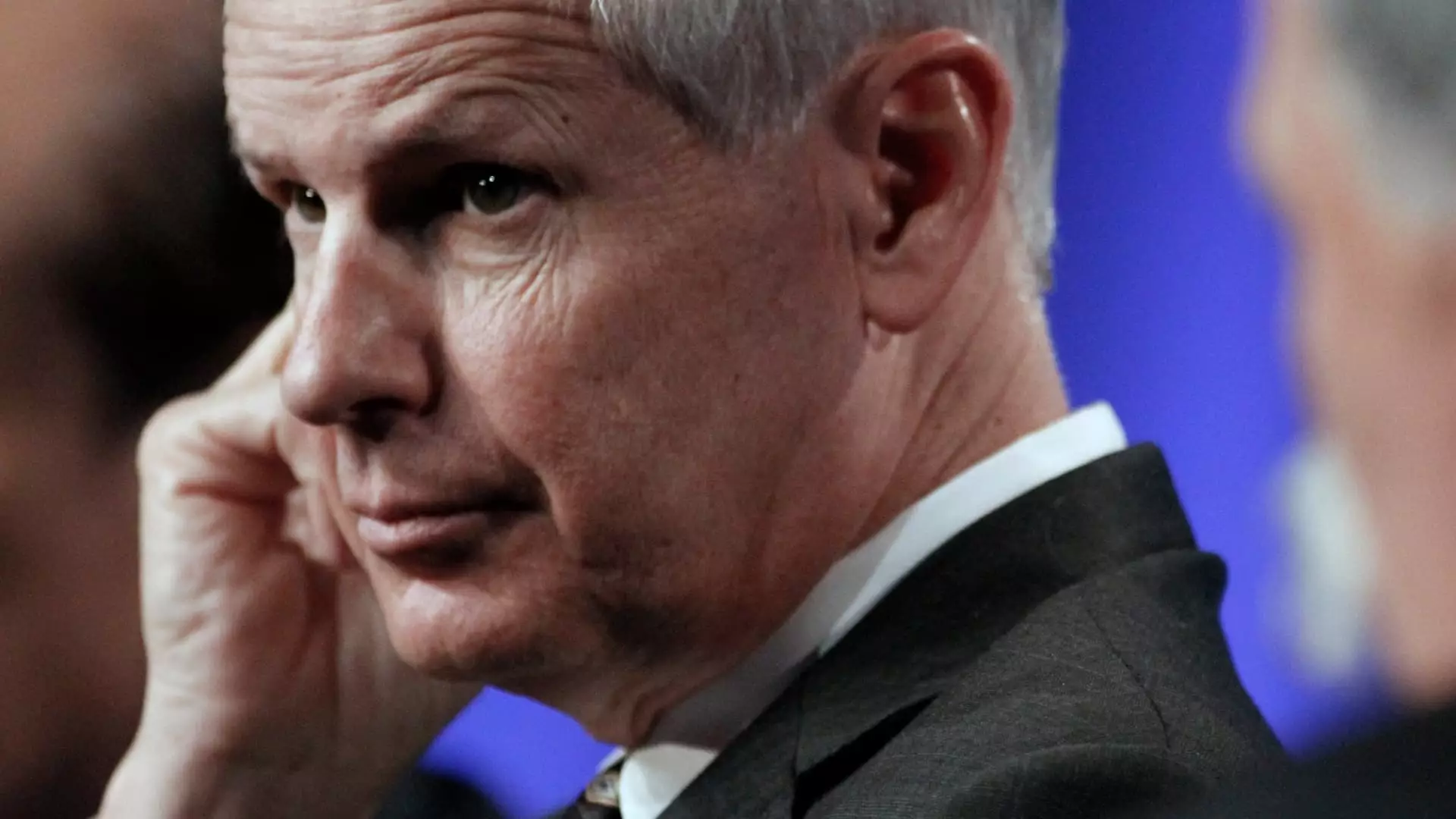In a landscape once dominated by satellite television, significant shifts are occurring as consumers move towards streaming services. After over four decades at the forefront, Charlie Ergen, founder of EchoStar, is close to executing the sale of Dish Network, a major player in the pay-TV sector, to DirecTV. This potential merger not only highlights the struggles of traditional satellite providers but also exemplifies the changing dynamics in the media industry amidst a battle for survival.
The ongoing negotiations between EchoStar and DirecTV, which is backed by private equity firm TPG and telecommunications giant AT&T, have reached an advanced stage. While both parties are optimistic about finalizing a deal by the upcoming Monday, uncertainty looms, as insiders suggest that there remains a possibility for the discussions to fall apart. The underlying factor fueling this potential merger is EchoStar’s urgent need to address its impending $1.98 billion debt due in November. As of mid-2023, EchoStar reported limited liquidity, with only $521 million in cash reserves, which further complicates the negotiations and reinforces the time-sensitive nature of this transaction.
As outlined by media analyst Craig Moffett, the looming possibility of bankruptcy for EchoStar seems increasingly likely within the next several months. This bleak forecast stems from the company’s inability to refinance its substantial debts and the pressure to secure new capital. EchoStar’s enterprise value is significant, estimated at around $31 billion, yet its fluctuating market capitalization indicates a potential vulnerability. The absence of wireless spectrum involvement in this transaction underscores the company’s prior ambitions to evolve beyond satellite services and adapt to a competitive wireless market.
While Dish Network and DirecTV once stood as titans in the television distribution arena, both companies have suffered significant subscriber losses in recent years due to a seismic shift towards digital streaming platforms. Subscription services like Netflix, Amazon Prime Video, and Disney+ have reshaped consumer behavior, causing traditional cable and satellite providers to struggle to retain audiences. Dish Network currently reports approximately 6.1 million satellite subscribers and 2 million for its Sling TV platform, revealing its desperation to reconnect with an audience whose viewing preferences have evolved.
DirecTV is not exempt from these challenges either. The company, once boasting around 15.4 million subscribers when AT&T acquired it in 2015, has dwindled down to approximately 11 million. Following AT&T’s divestiture of DirecTV in 2021, the company has been putting additional focus on enhancing its streaming capabilities, spearheading campaigns to promote its offerings beyond the conventional satellite model. This effort aims to reshape public perception, especially in light of recent distribution disputes that affected service availability for customers reliant on traditional satellite deliveries.
As negotiations for a merger between Dish Network and DirecTV progress, the implications extend far beyond the immediate financial health of EchoStar. Should the deal materialize, it could redefine the competitive landscape of television distribution, blending resources and subscriber bases that have both seen better days. Nevertheless, whether this merger can offer a viable business strategy remains uncertain, particularly as satellite providers grapple with mounting challenges posed by the streaming phenomenon.
The evolving trajectory of consumer preferences will undoubtedly be a critical aspect to monitor in the coming months. While traditional pay-TV models face serious existential questions, the outcome of this potential consolidation might forge a new path for satellite businesses trying to stay relevant in a highly competitive environment. As stakeholders and consumers alike watch the landscape shift, one thing is clear: the battle for viewers’ attention is far from over.

